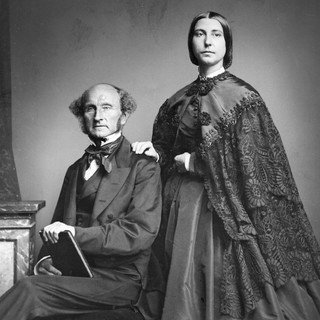On Liberty
"'On Liberty' by John Stuart Mill is a philosophical essay written in the mid-19th century. The work primarily discusses the nature and limits of civil or social liberty, emphasizing the importance of individual freedom against societal authority. Mill seeks to establish a framework that protects individuality and self-expression, which he argues are essential for human progress. The opening of the essay introduces Mill's exploration of the concept of liberty, contrasting it with authority and addressing the historical struggle between individual rights and government control. He highlights the evolution of societal views on governance and individualism, arguing that the necessity for society to impose restrictions on personal freedom must be strictly justified. Mill asserts that interference should only occur to prevent harm to others, emphasizing the sovereignty of the individual over their own body and mind. This sets the stage for his broader discussions on the rights of individuals and the role of society in governing conduct, making a compelling case for the protection of personal liberties in the face of societal pressures." (This is an automatically generated description from Project Gutenberg)
A shoutout to Harriet Taylor Mill
Harriet's contribution to this piece (and to John's work as a whole) is unclear and contested. Some argue she was a strategically unattributed co-author. Others argue that she was merely a vapid sounding board who coddled John's ego. And many land somewhere between the two extremes.1 Given the lack of surviving samples of her writing and the specter of misogyny that suppresses and devalues women's abilities, we probably will never know the true nature of her role in the creation of this book.
But, do you know what we do know for sure?
John Stuart Mill thought Harriet was a genius.2 He felt that his writings were not his alone, but instead they were the product of their shared mind. He insists that Harriet's ideas about ethics and society were what made him better than other economists of his time. And he loved how she eagerly learned from his ideas so they could expand their knowledge together. Now, I can't definitively say that she should be listed as an author here. But I can at least tell you John's feelings (and share this photo of the lovely couple)
- Learn more from the Stanford Encyclopedia of Philosophy 🔗
- Read John Stuart Mill's autobiography for free here 🔗

Table of Contents
Metadata
- publisherManifold @CUNY
- publisher placeNew York, NY

